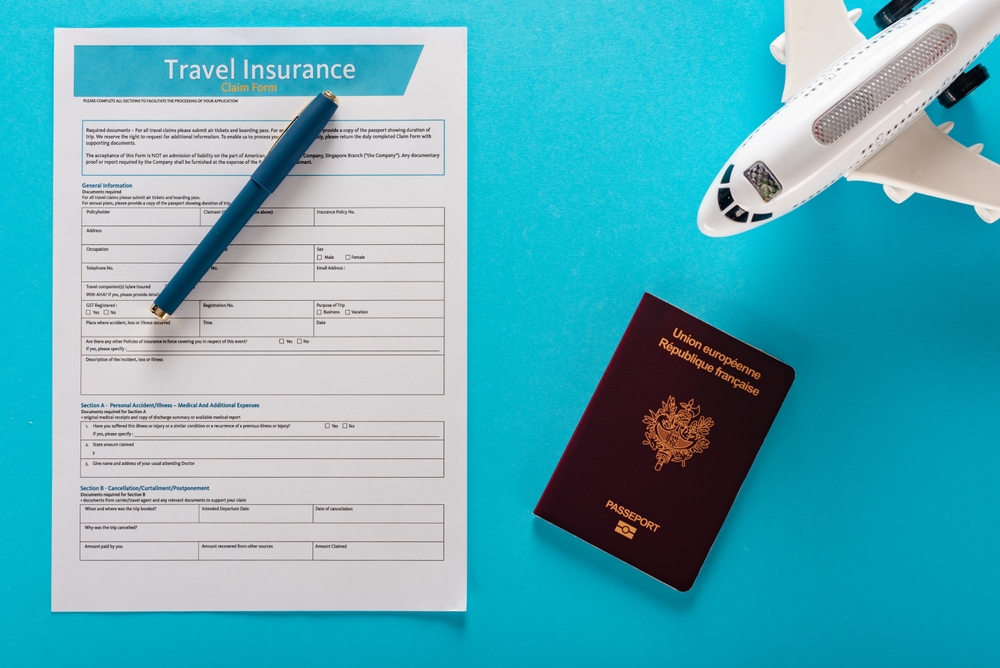Travel Insurance
Travel insurance serves as a protective cushion for individuals embarking on journeys, whether for leisure, business, or any other purpose. It’s a financial safeguard against unexpected events that can disrupt travel plans, cause financial losses, or pose health risks while away from home.
Definition and Purpose
At its core, travel insurance is a specialized insurance policy designed to mitigate financial risks associated with unforeseen incidents during travel. These incidents might encompass trip cancellations, medical emergencies, lost luggage, flight delays, or even accidents during the trip. The fundamental purpose of travel insurance is to provide travelers with peace of mind, knowing they have financial protection against various potential mishaps.
Read: Travel Insurance: Navigating the Unseen Risks
Types of Coverage
Travel insurance is not a one-size-fits-all concept. It encompasses various types of coverage tailored to address specific travel-related concerns. Some common types of coverage include:

- Trip Cancellation and Interruption Coverage: This aspect of travel insurance reimburses non-refundable expenses if a trip needs to be canceled or cut short due to unforeseen circumstances such as illness, natural disasters, or other emergencies.
- Medical Expenses and Emergency Assistance: It covers medical bills and emergency medical services required during travel, ensuring travelers receive necessary healthcare without facing exorbitant expenses.
- Coverage for Lost, Stolen, or Delayed Luggage: When luggage goes missing, gets stolen, or arrives late, this coverage helps travelers recover losses by compensating for the belongings.
- Protection against Travel Mishaps: From flight delays to unexpected cancellations by airlines or travel suppliers, this coverage provides financial protection against disruptions to travel plans.
Importance of Travel Insurance
The importance of travel insurance becomes apparent in scenarios where unforeseen events can create financial or health-related hurdles during a trip. Travelers who invest in appropriate coverage feel more confident in handling unexpected situations, knowing that they have a safety net to rely on.
Benefits of Travel Insurance
Travel insurance offers a range of advantages that go beyond mere financial protection, providing travelers with peace of mind and a safety net to navigate unexpected challenges during their journeys.
Trip Cancellation and Interruption Coverage
One of the primary benefits of travel insurance is its provision for trip cancellations or interruptions. Life is unpredictable, and unforeseen circumstances such as sudden illness, family emergencies, or natural disasters may force travelers to cancel or cut short their trips. With this coverage, individuals can recoup non-refundable expenses, offering a financial cushion during such unexpected events.
Medical Expenses and Emergency Assistance
Health emergencies in unfamiliar territories can be daunting, especially considering potential high medical costs abroad. Travel insurance steps in to cover medical bills and emergency medical services, ensuring travelers receive proper healthcare without the added stress of exorbitant expenses.
Coverage for Lost, Stolen, or Delayed Luggage
The loss, theft, or delay of luggage is a common travel mishap that can disrupt plans and cause inconvenience. Travel insurance provides compensation for lost or stolen belongings, or reimbursement for essential items if luggage is delayed, offering relief in otherwise frustrating situations.
Protection against Travel Mishaps
Travel plans don’t always go smoothly. Flight delays, cancellations, or unexpected changes in itinerary can occur. Travel insurance acts as a safety net in such situations, covering financial losses incurred due to travel mishaps beyond the traveler’s control.

Factors Influencing the Value of Travel Insurance
The decision to purchase travel insurance depends on various personal factors and the specifics of the trip being planned. Several key elements play a pivotal role in determining whether travel insurance holds substantial value for an individual:
Destination and Activities
Where you plan to travel and the activities you intend to engage in significantly influence the necessity of travel insurance. Certain destinations might have higher risks associated with health, political instability, or extreme weather conditions. Likewise, engaging in adventurous or high-risk activities such as extreme sports or mountaineering may call for specialized coverage.
Existing Health Coverage
Individuals with robust health insurance plans might already have some coverage for medical emergencies during travel. Understanding the extent of this coverage and whether it applies internationally can impact the need for additional travel insurance.
Cost and Coverage Options
The cost-benefit analysis of travel insurance plays a crucial role. Assessing the coverage options vis-a-vis the potential risks and expenses involved in the trip helps determine whether the investment in travel insurance aligns with the perceived value.
For some travelers, especially those embarking on short, low-cost trips or those already covered through alternative means, the additional cost of travel insurance may not outweigh the potential benefits. However, for others venturing into riskier or more expensive trips, the value and necessity of travel insurance become more evident.
Read: Traveling by Train: Making Rail Journeys Enjoyable
Criticisms and Limitations of Travel Insurance
Exclusions and Limitations
Travel insurance policies commonly have exclusions and limitations, which can sometimes lead to dissatisfaction or surprise among policyholders. Certain situations, such as pre-existing medical conditions, high-risk activities, or specific events like acts of terrorism, might not be covered by standard policies. Understanding these exclusions is crucial to avoid misunderstandings when filing claims.
Overlaps with Existing Coverage
In some cases, individuals might already have coverage through their existing health insurance, credit card benefits, or other means. When these policies overlap with the coverage offered by travel insurance, purchasing additional coverage may be redundant and may not provide added value.
Cost-Benefit Analysis
For some travelers, especially those embarking on shorter, lower-cost trips, the cost of travel insurance may outweigh the potential benefits. When the coverage costs significantly impact the overall trip expenses without substantially reducing perceived risks, travelers might question the necessity of such an investment.
Complexity and Fine Print
Understanding the intricate details and fine print of travel insurance policies can be challenging. The jargon and complex clauses within policies might lead to confusion or misunderstandings, potentially impacting the ability to make informed decisions or file claims when needed.
Limited Scope and Conditions
Travel insurance may not cover every conceivable scenario or may have specific conditions that must be met for coverage to apply. This limited scope might leave travelers unprotected in certain situations that were unforeseen or misunderstood when purchasing the policy.
Read: Travel Document Organization: Keeping Passports and Visas Safe
Making an Informed Decision
Assessing Personal Risk Factors
Understanding your own risk tolerance and specific needs is the cornerstone of making an informed decision about travel insurance. Factors such as age, health condition, the nature of the trip, planned activities, and the destination’s inherent risks play a significant role. Assessing these factors helps in determining the level and type of coverage required.

Understanding Policy Details
The devil lies in the details when it comes to insurance policies. Taking the time to thoroughly comprehend the policy’s terms, conditions, inclusions, exclusions, and limitations is crucial. Pay attention to coverage limits, deductibles, and specific scenarios where coverage might not apply. Knowing what the policy covers and doesn’t cover enables travelers to anticipate potential gaps in protection.
Comparing Different Insurance Providers
Not all travel insurance policies are created equal. Conducting a comparative analysis of various insurance providers and their offerings is essential. Look beyond just the price and consider factors like coverage breadth, reputation, customer service, and ease of filing claims. This comparison ensures choosing a policy that best aligns with your needs and preferences.





